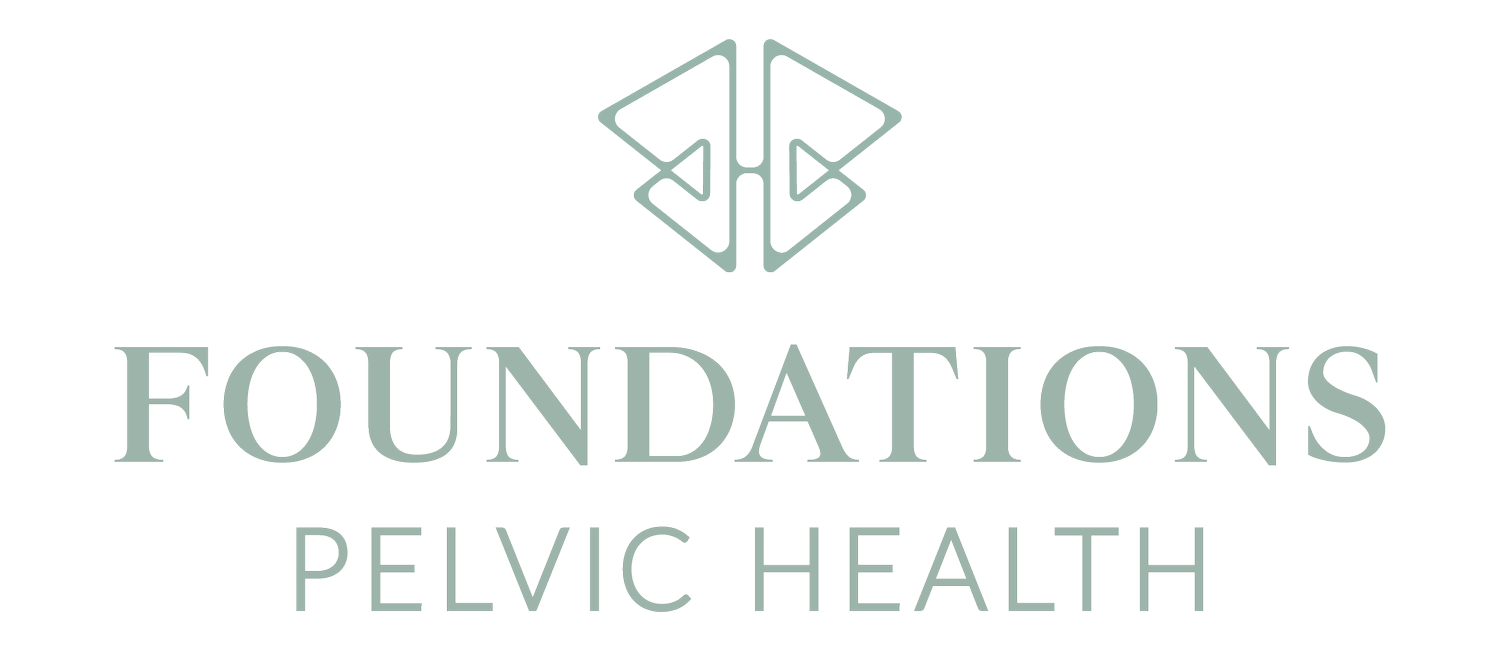A Guide to a Happy Bladder: Everyday Habits That Make a Difference
At Foundations Pelvic Health, we are a team of perinatal and pelvic floor therapy specialists. We help women through all phases of life and provide solutions to all of your pelvic floor issues. There are a lot of myths out there about what to do be doing for optimal bladder health, and we’re here to bust those myths and give you helpful advice for a happy bladder!
Your bladder and pelvic floor work in tandem to prevent issues like urgency, urinary incontinence, and discomfort. Small daily habits can make a big difference in preventing dysfunction and supporting long-term bladder health.
Whether you're looking to reduce urinary leakage or alleviate pelvic discomfort, adopting these habits can have a significant positive impact.
1. Stay Hydrated
Maintaining proper hydration is key to bladder health, but balance is essential. Your bladder can typically hold about 16 ounces (2 cups) of fluid before reaching capacity.
Underhydration: Not drinking enough fluids can cause urine to become more concentrated, irritating the bladder lining and increasing the risk of infections and discomfort.
Overhydration: Drinking too much water in a short period can overwhelm the bladder and increase the risk of urgency and incontinence, while also disrupting your electrolyte balance.
***Tip: Aim for small, balanced sips throughout the day—about half of your body weight in ounces, with two-thirds of that being water. For those who are breastfeeding or pumping, on certain medications, doing strenuous exercise or who live in hot environments - you might need some more fluids!
2. Limiting Bladder Irritants
Certain foods and drinks can irritate the bladder, causing urgency, frequency, and discomfort. What may be a bladder irritant to someone may not bother another person, so you don’t need to take all of these potential irritants out of your diet. If you're prone to bladder sensitivity, consider keeping a journal to track potential triggers instead of taking them all out.
Common bladder irritants to limit or avoid:
Coffee
Tea
Alcohol
Carbonated beverages
Artificial sweeteners
Spicy foods
3. Cut Back on “Just in Case” Peeing
Frequent “just in case” peeing—going to the bathroom even when you don’t feel the urge—can retrain your bladder to send false signals of urgency, even when it’s not full. This can lead to unnecessary trips to the bathroom and exacerbate bladder dysfunction.
Ideal frequency: The typical bladder holds 6-8 voids per day, with 0-1 at night, roughly every 2-4 hours during the day.
***Tip: Only go to the bathroom when you feel the genuine urge to pee. This will help train your bladder to respond more naturally.
4. Practice Proper Toileting Posture
Good toileting habits are crucial for maintaining healthy bladder and pelvic floor function. As you pee, your pelvic floor should naturally relax (No Kegels on the toilet!)
Helpful tips for proper toileting posture:
Avoid hovering over the toilet - sit down!
Don’t push or strain when peeing.
By allowing your pelvic floor to relax while sitting, you ensure that your bladder can empty completely.
5. Address Other Factors That Affect Bladder Health
There are various factors outside of hydration and diet that can impact bladder function.
Constipation: A full bowel can press on the bladder, reducing its capacity and causing urgency or the sensation of incomplete emptying.
Hormonal Changes: Hormonal fluctuations, especially around mid-cycle, can increase bladder sensitivity and urgency. A sudden drop in estrogen can also make the bladder lining more sensitive, mimicking mild UTI symptoms without an actual infection. Those who are lactating or post-menopausal may experience more bladder symptoms due to this decrease in vaginal estrogen.
By making these simple adjustments to your daily routine, you can significantly improve your bladder health and reduce discomfort and issues. Consistency is key to long-term results—small, mindful habits can lead to lasting benefits for your bladder and pelvic floor!
